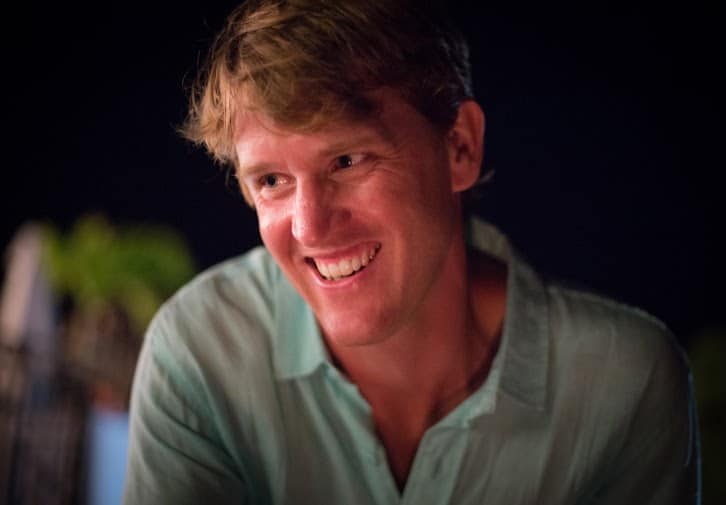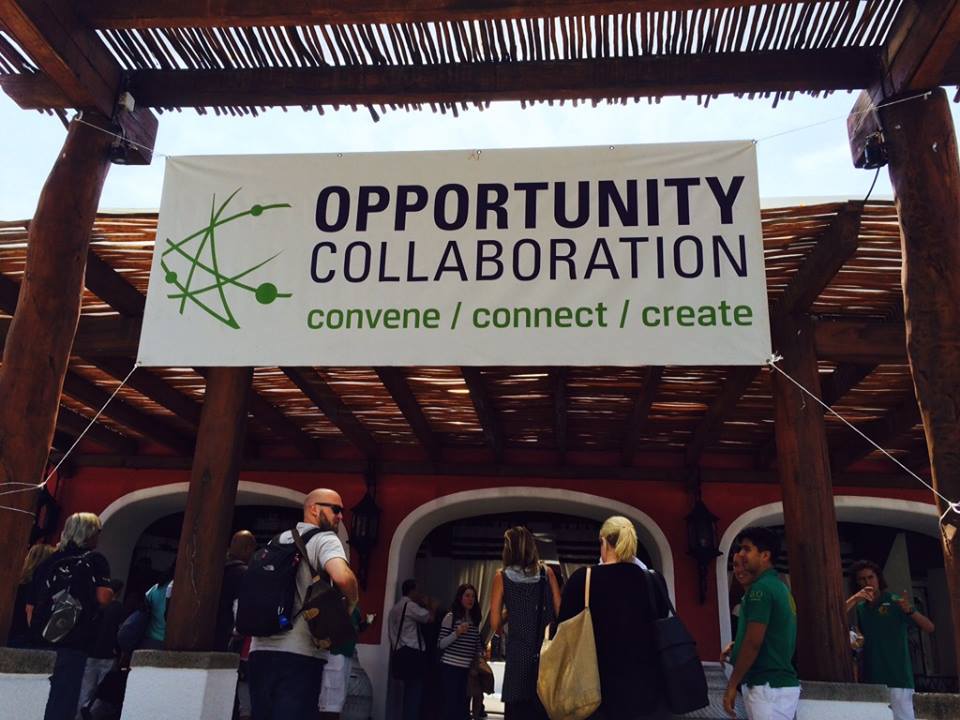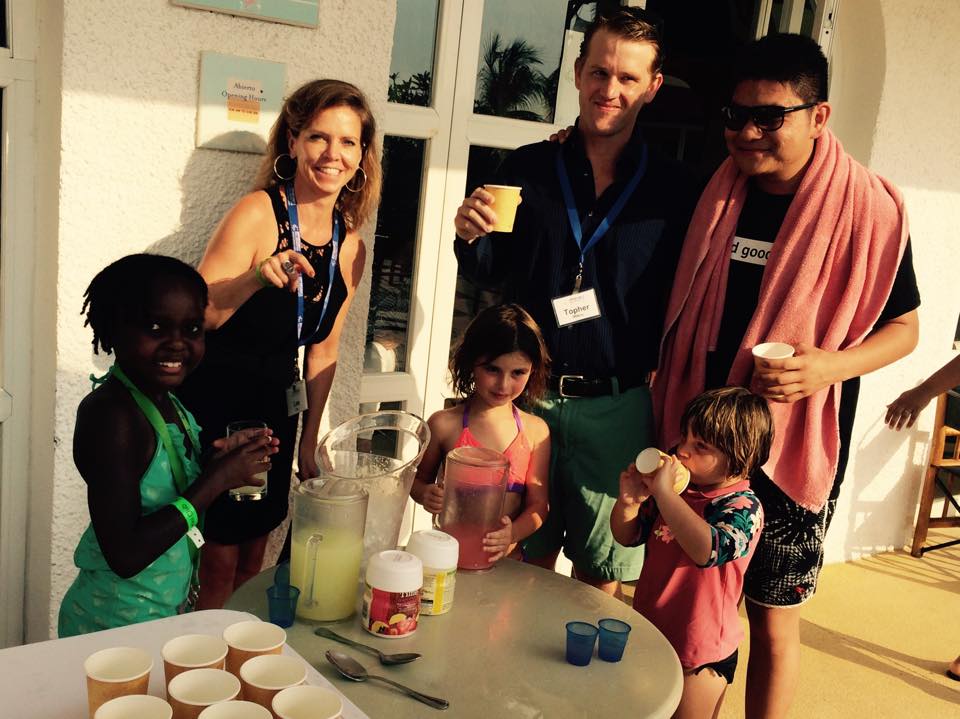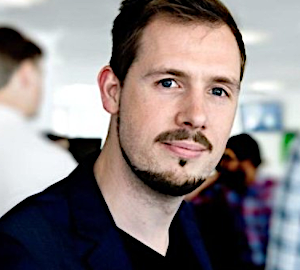
Topher Wilkins: Un-conference Yourself
BY PAKSY PLACKIS-CHENG
Opportunity Collaboration (OC) connects and supports global leaders building sustainable solutions to poverty.
Each year, 400-plus leaders attend the Opportunity Collaboration. A conference unlike others. These leaders spend close to a week in swim gear instead of suits. Sharing meals and stories of the work they do on behalf of all of us. Topher Wilkins is the CEO of Opportunity Collaboration, he shares his thoughts on his work and journey so far.
Why the Opportunity Collaboration?
Jonathan Lewis, the founder of MicroCredit Enterprises, one of the first micro-lending institutions, based in the United States, was making micro-loans to folks in the global south, to help lift them out of poverty. [Lewis] was arguably a pioneer in the world of micro-lending and micro-financing. Through that, he met a lot of interesting folks around the globe — folks who like him are focused on economic empowerment and development and poverty alleviation and social impact.
Two things were evident at that time. One was that he had this gaping network of people that he could do something with. The second realization was that these conferences where you see primary keynote and PowerPoint presentations and a lot of sterile conference-room environments — basically a lot of time spent staring at somebody on the stage where most people would prefer to be talking to each other… We realized that there must be a different way to bring people together.
You see more of these un-conference conferences coming up. What makes this uniquely yours?
True authentic conversation relies on true authentic connection. We put a tremendous amount of emphasis on getting these leaders to come together for a prolonged period of time, in a very relaxed environment, and have conversations for half the day every morning that have nothing to do with their affair, their professional context. A very broad and vulnerable conversation is curated in the morning.
The conversations are much more along the lines of, who are we as human beings? What’s our story? What motivates us to do the work we do? Interest in the personal experiences that we’ve had with poverty, power, privilege, and with inequity…
The internal work, the more heart-based work, the more self-exploratory work, is what set OC apart from any other.

Each year, 400 global leaders gather for Opportunity Collaboration
Could you provide an example of something that was brokered during an OC Summit?
We do a lot in terms of tracking our outcomes. We spend a tremendous amount of time and attention on making sure that every year produces concrete results for people. We track those results in two different categories. One is the quantitative type. That’s where we look at how many deals were done essentially. Did the right founder find the right social entrepreneur? Did the organization achieve the results that it was hoping for in regards to potential board members or hiring staff or building partnerships?
One of my favorites in the quantitative category was that three different organizations merged under one umbrella as a result. It was a finance institution, a network of organizations, and it was a large foundation operating in Southeast Asia.
Then the other outcome that we see a lot from OC relates to your first question — is more qualitative. We get these testimonials: “I reconfigured my leadership style; I rediscovered my passion for being in this space and avoided burnout.”
We have seen several romantic relationships and even a wedding!
What would be the best way for people to get involved to support poverty alleviation?
Aside from coming to the Opportunity Collaboration, my emphasis would really be looking at local change. Even in the United States, there’s a tremendous amount of social inequality. The more we look to our neighbor and in our local communities to see how we can be of service… There are many nonprofits in any given city or even small town where people can get engaged and volunteer.
What do you think in general is needed for social change?
I’m thrilled at the level technology has allowed us to really have a global consciousness. A facet of simply being aware and being able to see people all over the globe and how they live is a huge piece to activating our inner social change.
Beyond the outward-awareness capacity, it takes an inner awareness, too. In order to be a truly effective social-change agent, we have to do a lot of inner work. We have to understand our own motivations for wanting to do that type of work before we fix others’ brokenness.
Who is one of your favorite impact makers — someone who left an imprint on your professional DNA?
Our founder is the one that immediately jumps to mind. Jonathan is an incredible social-change leader in this space and has been a huge force in my life when it comes to the work that we do. I consider him a friend first and foremost.
I also think of somebody like [CNN Hero] Jackson Kaguri.
He grew up in extreme poverty himself in Uganda. His parents died of AIDS when he was young. He grew up with the AIDS epidemic. The organization he founded, the Nyaka Aids Orphans Project, provides free schooling and medical care. It’s a very holistic approach to helping children who are like Jackson: born into poverty and born without the support of immediate family.
What does your work teach your three sons?
Wow, well, luckily we’re able to involve them to a great extent. There are something like 35 children at OC last year because they accompany their parents. Those children are able to have the same types of conversations that the adults are having.
They talk about, what poverty? They talk about, what does it means to be a potential leader? They talk about the different cultural contexts from which they’re coming.

Future Impact Makers: Kids at Opportunity Collaboration
My wife [Chief Operating Officer of OC] and I are constantly talking to our boys about the work that we do. We talk about what we see in our local community when it comes to homelessness or poverty or social inequality. I’m not gonna be the sort of helicopter parent trying to force them into social change, but I think that they will certainly grow up with a much stronger understanding of the difference for societal content.
What’s next for you?
I consider Opportunity Collaboration a calling more than a job. It’s been such a privilege and a pleasure to work with these other leaders who are looking at solving poverty. I cannot imagine doing anything else. That said, a couple years back, I created another organization that is essentially a peer group, a trade association for folks whose job is to support major conferences, meetings, gatherings, etc., for social change leaders, called conveners.org.
What is one word that would describe your journey so far?
Serendipity. My wife, Jorian, worked for Bain & Company; then she got accepted to the Stanford business school. At the end of Stanford, Bain & Company came back to her and said, “Jorian, if you wanted to come back and work with us, we could give you a promotion.”
At the time, we were committed to a life together. We knew we were going to be coordinating a life in tandem. What would that really look like for us, if she was working as a corporate player at 60 to 80 hours a week? Or to commit to a career where we weren’t putting the dollar as the priority… We’re putting a life of meaning, a life of certain emotional, social fulfillment, first and foremost.
From then on, because of that intention that we set very early on in our professional careers, we have found just the perfect alignment between having a sense that we were giving back and being of service to the world and also having a comfortable life.
It’s been very serendipitous.




